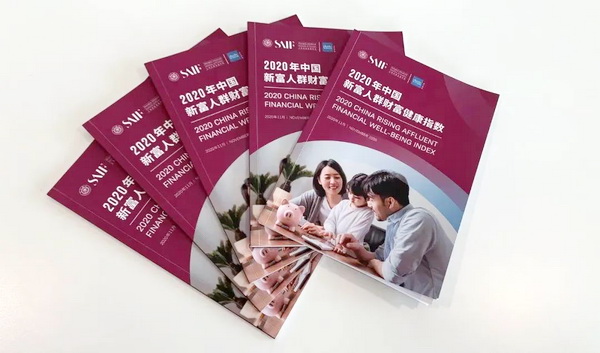The latest 2020 China Rising Affluent Financial Well-being Index reveals that the COVID-19 outbreak has prompted China's rising affluent population to attach more importance to financial planning and diversified investment. Asset management fragility of the rising affluent class shows the need for improving financial literacy and consolidating foundations of wealth management. Meanwhile, the investment advisory model (combining offline consultants with digital platforms) helps to comprehensively upgrade their financial well-being.
On November 27th, 2020, both the Shanghai Advanced Institute of Finance (SAIF) at Shanghai Jiao Tong University and Charles Schwab jointly released the 4th issue of the China Rising Affluent Financial Well-being Index. The index tracks the changing perception of wealth among China's rising affluent population, a group that has a growing influence on the Chinese and global economies.

The latest data in 2020 show that, despite the impact of COVID-19, the financial outlook of China’s rising affluent population is still optimistic. Many rising affluent individuals have gradually realized the importance of financial planning and diversified investment, and have actively formulated financial plans and optimized asset allocation. Therefore, this group's preference for various investment advisory services has increased significantly. However, the financial management of many rising affluent individuals still shows deficiencies — mainly manifested in their inability to repay debts as scheduled. To this end, financial service providers should take the initiative to carry out investor education, guide them in order to properly cope with challenges, and optimally manage their wealth.
The 4th issue of the Index focused on the changes in financial well-being and investment behaviors of the rising affluent population in China under COVID-19 pandemic. The survey interviewed more than 4,300 rising affluent individuals with annual incomes of RMB 125,000 to RMB 1,000,000 and with investable assets of less than RMB 7,000,000. The 15 cities covered in China include: Shanghai, Beijing, Guangzhou, Shenzhen, Chengdu, Hangzhou, Dalian, Xiamen, Chongqing, Wuhan, Nantong, Shijiazhuang, Zhongshan, Kunming and Xiangyang. The questionnaire consist of 65 questions involving core issues related to index modeling.
Initiated by SAIF and Charles Schwab, the China Rising Affluent Financial Well-being Index is now being carried out by Nielsen, an international monitoring and data analysis company. The 2020 Index helps financial professionals to better understand and explore the investment behaviors of China's rising affluent population in order to provide more services tailored for this group — which is of extreme importance to the Chinese and global economies.






